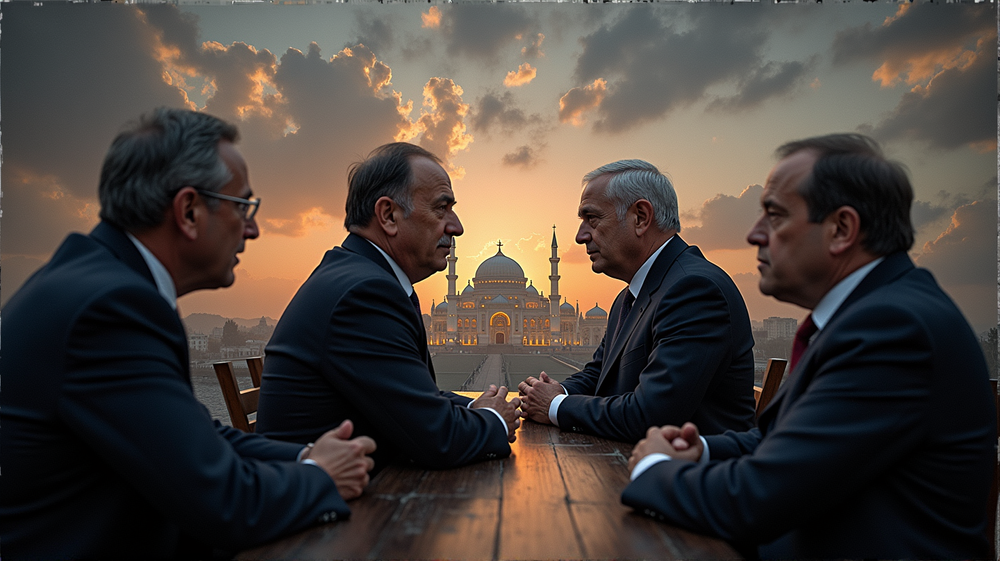European Mediators in a Crossfire
In a bold yet uncertain move, the three major European powers, Germany, France, and the UK, met with Iranian Foreign Minister Abbas Araghchi in Geneva, Switzerland, attempting to avert further escalation in the Middle East conflict. These talks, however, did little to quench rising tensions, with US President Donald Trump swiftly dismissing their efforts. According to Al Jazeera, the talks were more an exercise in patience than solutions, as differences continue to carve a path of diplomatic hesitation.
A Treaty Under Siege
The Joint Comprehensive Plan of Action (JCPOA) of 2015 served as a fragile bridge over turbulent nuclear waters, artfully crafted to ensure peace. Yet its uncertain fate underscores a growing divide since Trump’s 2018 withdrawal. While the E3 struggle to revive its tenets, Iran and Israel’s exchanges of aggression paint a vivid picture of frustration over diplomatic stalemates – a stark reflection of political complexity.
Diverging Paths: Unity or Dissent?
Once universally aligned in approach, the E3’s stance towards Israel now seems to impart a tune of discord, as their once-unified voice fractures under the strain of differing national interests. Germany leans towards unyielding support for Israel’s actions, whilst the UK and France slowly pivot towards criticism and advocacy for Palestinian recognition. This evolving narrative not only tests European foreign policy unity but also the strength of their collective diplomatic influence.
Leverage or Liability?
Despite their status as economic powerhouses, the E3’s ability to mediate effective outcomes with either Iran or Israel remains in question. Their allure as compromise-makers is shaded by the harsh reality of military might, as neither side appears swayed by European pleas for cessation. The true potential lies in bridging diplomatic rifts with the United States, yet even this seems a mountain half-climbed.
A Mirage of Mediation
Could the E3 persuade peace from conflict’s hands? History casts a shadow of doubt, as the intricate dance between Europe, Iran, and Israel highlights a web of failed resolutions. With the echoes of JCPOA’s stumbling efforts resonating louder than calls for diplomacy, the E3’s place in the world stage requires redefinition amid changing tides.
The Global Chessboard
While some hope lies in United Nations interventions, geopolitical intricacies involving major players like China, Russia, and the US further blur prospects for a unified global strategy. Each bears its own set of interests, with China’s ties to Iran particularly poignant amidst this geopolitical maze. Regional stability teeters on a delicate balance, prompting observers to wonder if a new dawn or dusk will emerge across the conflict horizon.
As articulated in Al Jazeera, diplomacy here is less a clear-cut path and more a canyon of complex initiatives, awaiting a blend of resolve and patience too often overshadowed by immediate stakes on the ground.












